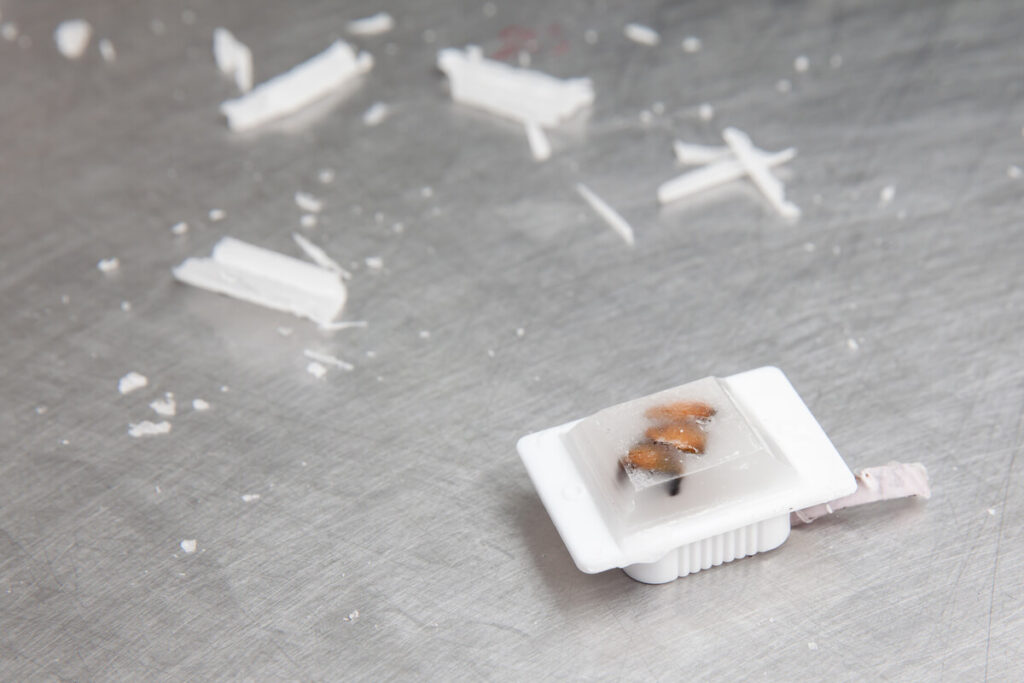What is Paraffin? Unlock The Potential of Biomedical Research
You may heard of paraffin, but likely don’t know exactly what it is. The unique substance can (and is) used widely in diverse industries. Paraffin can be found in beauty products and candles, but this incredible tool is particularly crucial in biomedical research.
Biomedical researchers now have the ability to seal tissue samples in paraffin and formalin, allowing them to examine even thinner tissue samples under a microscope than they were able to previously. By preserving human tissue samples in a paraffin and formalin compound, researchers can conduct various tests on tissue samples, diminishing the need for additional biopsy procedures. Keep reading to learn the unique and groundbreaking ways that paraffin is used throughout various industries.

What is Paraffin?
Paraffin is derived from petroleum and shale oil. The substance is well known for its colorless, odorless, and waxy solid properties and its various applications. Liquid Paraffin, also known as mineral or white oil, has unique lubricating properties. Paraffin oil, sometimes called kerosene, is the byproduct of refining petroleum oil to fuel lamps and heaters.
Paraffin can remain in a solid state at room temperature but can also be melted easily with temperatures as low as 120℉. Thus, the versatile substance is most often found as wax and used in candles and cosmetics. Nevertheless, paraffin is also known for its critical role in preserving human tissue samples for biomedical research.
Paraffin For Tissue Preservation
Perhaps paraffin’s most useful duty is as a biomedical stabilizer. Researchers now have the ability to take smaller biopsy samples and examine the samples in great, transparent detail with the help of paraffin. Formalin-fixed Parafin-Embeded (FFPE) is a fantastic biomedical tool that prevents decay and enables the thorough examination of the tissue. Surrounding the sample with melted wax, or liquid paraffin, protects it from decay. FFPE is a preservation method that maintains the tissue sample’s composition—allowing researchers to examine thin, fragile layers without fear of damage. Samples preserved using FFPE also allow for the long-term storage of tissue samples and precise, reproducible results in histopathological research.
The use of paraffin, particularly FFPE tissue samples, mitigates every bioresearcher’s fear of encountering a false positive caused by a decaying sample. By studying FFPE tissue samples, scientists have made significant progress in analyzing genetic mutations, identifying targets for treatment, and predicting biomarkers. FFPE allows physicians to develop personalized approaches to treatment, which have led to better outcomes for patients.
Research and Diagnostics Uses
Formalin-fixed paraffin-embedded tissue specimens are used in biomedical research and clinical diagnostics to understand disease and predisposing biomarkers. Through studying FFPE samples, researchers have developed a deeper understanding of various diseases’ molecular and cellular characteristics, including cancer, infectious diseases, and neurological disorders.
FFPE tissue specimens are crucial for diagnosing diseases, evaluating their severity, and determining the best course of treatment for patients. These specimens are utilized in molecular diagnostic tests, like polymerase chain reaction (PCR) and next-generation sequencing (NGS), to identify genetic mutations and other changes related to the disease.
Is Paraffin Wax Toxic?
Thankfully, paraffin wax on its own is considered safe and non-toxic. It is a trusted substance often used in cosmetics, candles, and food packaging. However, when used in combination with formalin, paraffin can become toxic. Though paraffin wax is a safe and versatile option for tissue preparation, the process of preparing FFPE samples requires formalin, which is known to be poisonous and should be handled professionally.
Yield Clear Results With Paraffin-Embedded Tissue Samples
Paraffin preserves the integrity of tissue samples and enables the accurate analysis of formalin-fixed paraffin-embedded (FFPE) tissue samples. By encasing tissue specimens in a solid wax matrix, paraffin enables long-term storage and allows the safe examination of thin, delicate sections. Paraffin has advanced, and will continue to advance, pivotal tissue preservation techniques in biomedical research.
Join Superior BioDiagnostics, top-rated academic institutions, and biomedical companies in our quest to understand disease mechanisms and improve patient care.
Order FFPE human tissue samples with same-day shipping! Our professionals are ready to assist you with any tissue sample or biofluid needs today.
